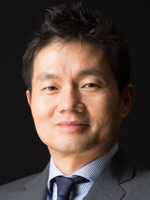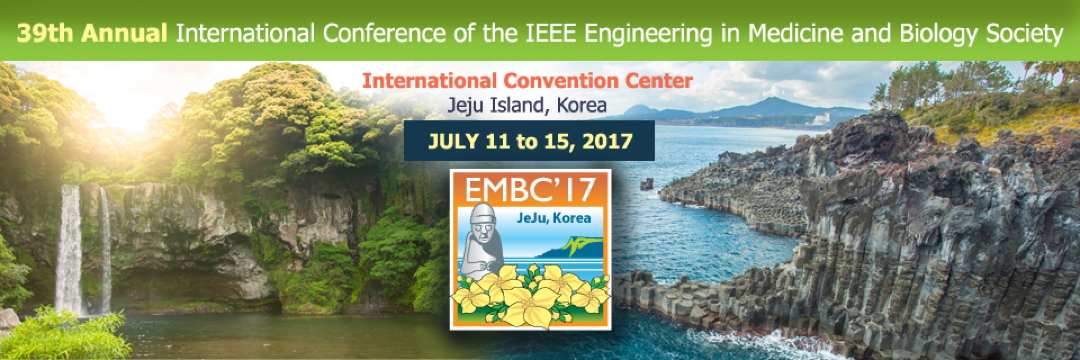EWOD Digital Microfluidics and Its Biomedical Applications Including the Synthesis of PET Radiotracers
The reconfigurable microfluidics mechanism of electrowetting-on-dielectric (EWOD) has led to various optical and biological applications. In a typical EWOD device, including commercial ones, aqueous droplets in oil are manipulated by electric signals. If operational in air environment as well (i.e., no oil surrounding the droplets), EWOD would open the door for many additional applications. One example is MALDI-MS, where the aqueous liquid needs to be evaporated prior to sample analysis – this is not possible if in oil. We have demonstrated an integrated EWOD-MALDI-MS chip designed for parallel processing of multiple sample droplets without oil. Leveraging on this success, our team between engineering and medicine at UCLA has been working to synthesize PET tracers on an EWOD digital microfluidic platform. All the key steps have been demonstrated on a single EWOD chip to synthesize a variety of 18F-labeled tracers in the nanomole quantities necessary for PET imaging. The obtained fluorination efficiencies (90-95%) and synthesis times (30-60 min) were comparable to conventional approaches, and overall yields were sufficient for eventual clinical use. Additional techniques, including dose scale-up and product purification, have been developed on chip to move towards the ultimate goal of producing tracers for clinical imaging. The resulting integrated system, being commercialized by Sofie Biosciences, is expected to dramatically reduce radiation shielding and the associated cost, empowering final users to produce radiotracers of their choice locally and eventually making PET imaging as readily available as CT and MRI.
Biography
 Professor CJ Kim received his B.S. from Seoul National University, M.S. from Iowa State University, and Ph.D. from the University of California at Berkeley, all in mechanical engineering, and joined the faculty at UCLA in 1993. Directing the Micro and Nano Manufacturing Laboratory, his research is in MEMS and Nanotechnology, including design and fabrication of micro/nano structures, actuators and systems, with a focus on the use of surface tension. The recipient of the Research Excellence Award (Iowa State Univ.), TRW Outstanding Young Teacher Award (UCLA), NSF CAREER Award, ALA Achievement Award, Samueli Outstanding Teacher Award (UCLA), and Ho-Am Prize in Engineering, Prof. Kim has served on numerous professional and governmental committees and panels in MEMS and nanotechnology, including General Chair of the 2014 IEEE International Conference on MEMS. An ASME Fellow, he is currently serving as Senior Editor of the IEEE Journal of MEMS; on the Editorial Advisory Board for IEEJ Transactions on Electrical and Electronic Engineering; and on the International Steering Committee of IEEE MEMS. He has also been active in the commercial sector as a scientific advisor, consultant, and founder of start-up companies.
Professor CJ Kim received his B.S. from Seoul National University, M.S. from Iowa State University, and Ph.D. from the University of California at Berkeley, all in mechanical engineering, and joined the faculty at UCLA in 1993. Directing the Micro and Nano Manufacturing Laboratory, his research is in MEMS and Nanotechnology, including design and fabrication of micro/nano structures, actuators and systems, with a focus on the use of surface tension. The recipient of the Research Excellence Award (Iowa State Univ.), TRW Outstanding Young Teacher Award (UCLA), NSF CAREER Award, ALA Achievement Award, Samueli Outstanding Teacher Award (UCLA), and Ho-Am Prize in Engineering, Prof. Kim has served on numerous professional and governmental committees and panels in MEMS and nanotechnology, including General Chair of the 2014 IEEE International Conference on MEMS. An ASME Fellow, he is currently serving as Senior Editor of the IEEE Journal of MEMS; on the Editorial Advisory Board for IEEJ Transactions on Electrical and Electronic Engineering; and on the International Steering Committee of IEEE MEMS. He has also been active in the commercial sector as a scientific advisor, consultant, and founder of start-up companies.
